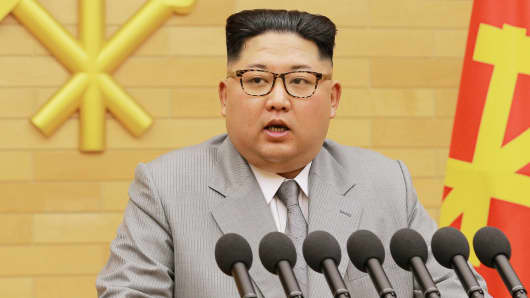But for the United States, rising tensions are the inevitable consequence of pressures on the North to give up its nuclear program, particularly now, when the North does not actually have a sizable, survivable strike force to employ. The Trump administration is seeking to increase greatly the pressures on the North to alleviate a potential nuclear threat to the U.S. homeland.
Were the South to accept the offer of direct negotiations, the South will expose its government and its public to pressures from the North. The North, relying on its military threat, now strengthened with nuclear capabilities, will demand relief from the South—food, fuel, foreign currency, respect.
In exchange it will offer some elements of warmer relations—opportunities for family visits, exchanges of emissaries, pledges of future economic cooperation, and so forth. The offers will no doubt be leaked, the public teased, the South Korean government blamed for delays and problems.
The negotiations will become the staple for propaganda blaming the United States for tensions, and undercutting support among the South Korean electorate for the alliance with the United States. If the South gives in to these blandishments, it will undercut the U.S. strategy of increasing pressure.
On the other hand, if the South declines the negotiations, or resists the blandishments offered, it risks the political wrath of some of its own electorate. It also surrenders the initiative to the North, perhaps reducing support in the UN and elsewhere for implementing the tougher sanctions already approved.
Thus the North Korean offer would seem to place the U.S. and South Korea in a difficult dilemma. Accepting the talks potentially drives a wedge between the South Korean government and the United States. Refusing to talk weakens the government in Seoul and also the sanctions.
But, there is another way. South Korea could direct the North's offer to a more fruitful forum for negotiation: Indirect negotiations through mediators. The issues between the two Koreas are longstanding and painful. Using intermediaries would provide a buffer for the two parties, as well as for the public, and enable teams of technical experts to assess issues, and offer sound, realistic and long term solutions.
Indirect negotiations, through mediation have been successfully applied in numerous international efforts. They were particularly effective in the Balkans, with Ambassador Richard Holbrooke's Dayton Peace Process. Here a hot war was ended – between parties that would not directly speak with each other, and that had defied solution for three long years, and well over 100,000 deaths.
The key in these negotiations was to keep the parties separate until all sides had laid out their positions, and then through a combination of mediation and negotiation, arrive at mutually acceptable compromises. Incentives and disincentives were also offered to the sides.
Technical expert teams have long guided negotiations on contentious issues such as strategic nuclear force levels, conventional forces, intermediate nuclear forces, confidence building measures, and other matters between rival powers.
There are deep reservoirs of experience on all the issues which might arise in the case of Korea, including nuclear, economic, humanitarian, and diplomatic; the use of this experience can assure that mediated talks do not degenerating into barb-trading and propaganda.
In the case of the Koreas, such mediation should be begun at the head of state level, with the mediators meeting directly with North Korea's Kim, and South Korean President Moon. In an initial meeting, the aims, constraints, and limits of the respective parties can be assessed.
What does each side hope to achieve? What are its ultimate objectives? What is the timing that each side can accept? Will each side appoint a team to work with the issues? What will each side do to show its good intent? What are any red lines in the discussions and negotiations? What are the incentives and disincentives the international community could offer?
Then the discussions can devolve into a set of working groups centered on specific issues.
Ideally the mediators would represent Europe, Asia and Africa…and no doubt there are heads of state who would volunteer for such an effort. The U.S., China, Russia, and Japan could form a council of guarantors monitoring and assisting the mediators, and the United Nations could
be called on to endorse the outcome, for the stakes in these negotiations are indeed the peace and security of North East Asia and beyond.
In the meantime, the sanctions should be fully implemented and enforced. If the North wants immediate relief, it must take action to rein in its nuclear program.
Commentary by Retired General Wesley Clark, a former NATO Supreme Allied Commander and a Senior Fellow at the UCLA Burkle Center. Follow him on Twitter @
GeneralClark.
For more insight from CNBC contributors, follow
@CNBCopinion
on Twitter.


